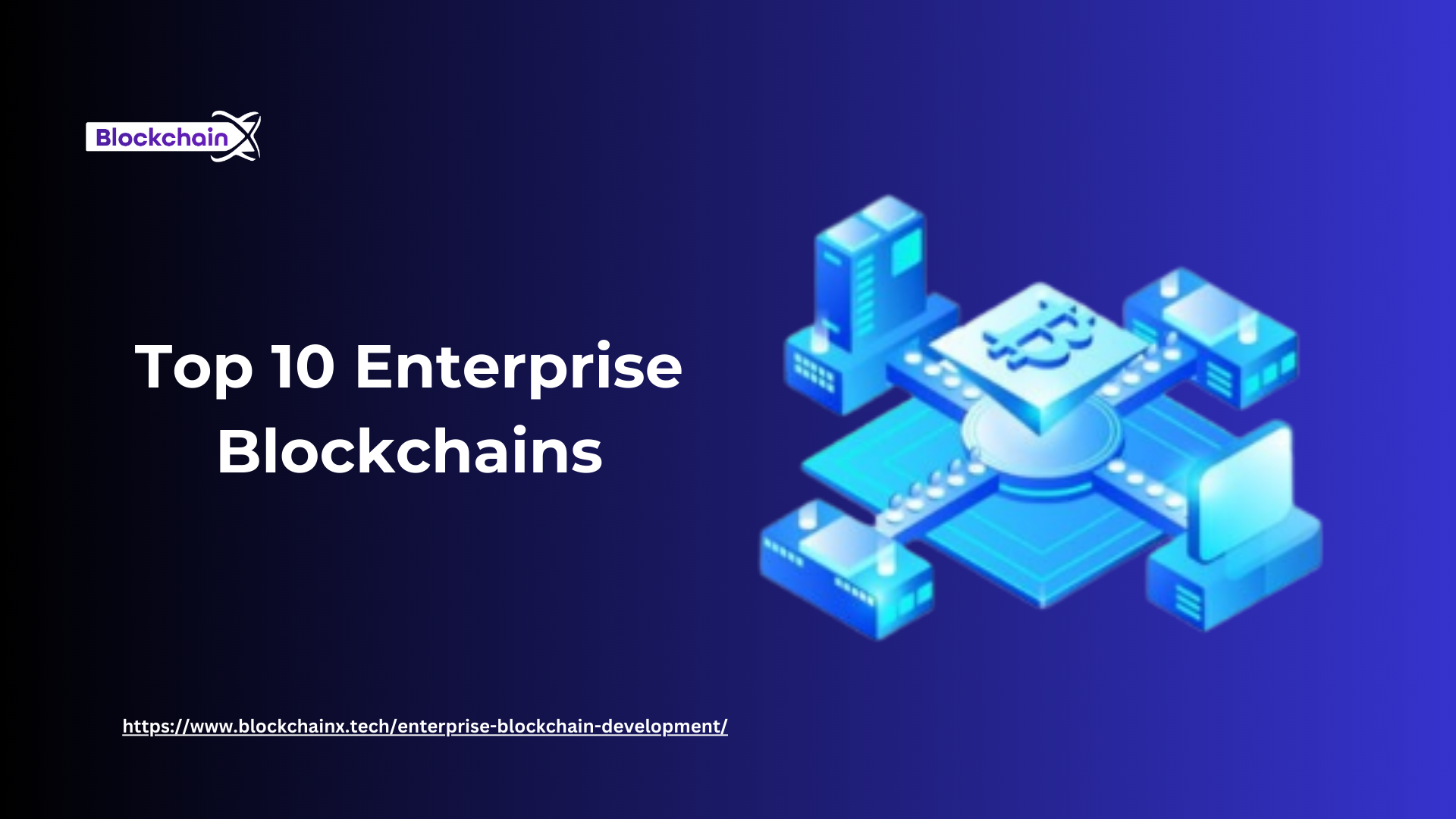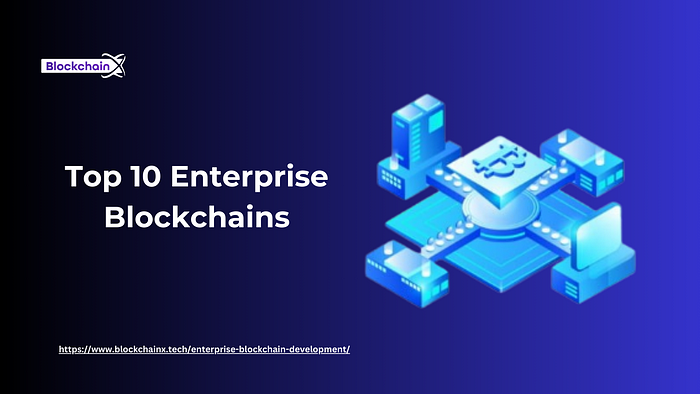Top 10 Enterprise Blockchains
 kishore senthil
kishore senthil
What is an enterprise blockchain? An enterprise blockchain is similar to a traditional blockchain in that it distributes and provides real-time data to users. What sets these networks apart is their focus on the demands of large companies. Enterprise blockchain must be permissioned to allow companies to access sensitive data while keeping the same information out of the wrong hands.
To accomplish these tasks, these networks employ various methods to keep personal data protected. These methods may include restricting access to nodes, requiring specific authentication such as NFT tokens, and other logistical requirements. There are even many enterprise-grade blockchains that are legally bound, meaning their contracts are valid and enforceable in court.

1. R3 Corda
Rs Corda is an open source a BFT (Asynchronous Byzantine Fault Tolerance) powered blockchain. The network introduces a number of features that enhance enterprise-grade design and implementation. Dapps and permissioned networks. The platform leverages a pluggable framework and simplistic design to accomplish this task effectively.
R3 Corda entered the market in 2015 and has seen considerable adoption since its launch. The network’s focus on the business sector has borne fruit. Today, some of the world’s largest technology companies, including Intel and Microsoft, take advantage of the network. Notably, R3 has strategic partnerships with over 60 companies currently and the list continues to expand.
2. EOSIO
EOSIO-Taurus was launched in 2018 with the intention of serving large enterprises globally. The network provides high performance and security to customers. It is an open source project that combines several benefits that make it stand out.
EOSIO is a strong competitor in the market. Its structure offers low-latency data queries and transactions. The network includes a streaming and query interface, which significantly improves efficiency. The broadcast interface allows smart contracts to publish messages, while the query option allows developers to access data in real time.
3. IBM Blockchain
Many people are surprised to learn that IBM has been in the blockchain market for many years. The company entered the market in 2017 through the IBM blockchain.
IBM blockchain provides a combination of systems, making Enterprise blockchain development easier for companies to create, deploy and manage blockchain networks. The project helps simplify the most complex blockchain integration and management processes. To accomplish this task, the developers ensured that the system was easy to use and compatible with legacy systems.
4. Hyperbook fabric
Hyperledger Fabric began offering enterprise solutions in 2015. The developers wanted to create a permissioned blockchain that was ideal for memberships and exclusive systems. Hyperledger Fabric leverages the PBFT consensus mechanism to provide low latency and high throughput.
The Hyperledger Fabric community is growing. Currently, the group consists of more than 185 companies spanning almost all major sectors, including healthcare, finance and technology. You can expect to see further growth from this community as the Hyperledger Fabric community continues to expand its tools and libraries. Today, it remains an attractive solution for businesses looking to save time and effort by creating membership-focused platforms.
5. Quorum
The network does not have a native utility token. It was developed by financial giant JP Morgan and is supported by ConsenSys. Notably, the network leverages Ethereum as a foundation, improving its interoperability and accessibility.
Uniquely, Quorum was built from the ground up to serve the financial sector. As such, Enterprise blockchain development Company offers some interesting options, such as making private transactions. To make this option possible, the network introduces Constellation technology. This system encrypts specific messages in enclaves, keeping them away from the public eye.
6. RippleNet
The firm has been in business since 2012 and recently won a major ruling from the SEC. Ripple offers businesses real-time gross settlement options and much more.
The platform attracted attention when it went live with the specific goal of helping banks and businesses reduce the costs associated with international money transfers. Today, the platform community includes many renowned companies, such as Western Union and Santander Bank.
7. XDC Network
The XDC network is another competitor that companies should spend some time researching. Additionally, the protocol integrated some impressive technology to improve performance.
XDC leverages a sharded architecture, making it much faster than traditional blockchains. The master node structure improves performance by reducing the number of commits required before completion.
8. Hedera Hashgraph
Hedera Hashgraph is a third-generation distributed ledger that offers a number of interesting features and high performance for businesses. The network operates using an aBFT consensus mechanism that provides scalability without sacrificing security. In particular, Hedera Hashgraph is a legally distributed ledger.
9. Enterprise Ethereum
Ethereum is by far the largest and most used blockchain ecosystem globally. As such, it is not surprising that there is strong demand for business services from the community. The Enterprise blockchain solution Ethereum Network leverages the maturity of Ethereum to offer businesses easy access to everything they need to integrate blockchain solutions.
10. Tezos
Tezos is a PoS-powered blockchain that offers businesses trusted access to decentralized applications and more. The project and its utility token (XTZ) serve as open source options for businesses and individuals. Tezos was designed to be scalable and environmentally friendly. As such, it does not require miners to validate the state of the blockchain.
Subscribe to my newsletter
Read articles from kishore senthil directly inside your inbox. Subscribe to the newsletter, and don't miss out.
Written by

kishore senthil
kishore senthil
Enterprise blockchain development involves leveraging blockchain technology to create tailored solutions for businesses. Unlike public blockchains, enterprise blockchains are often permissioned, allowing designated participants control over access and governance.